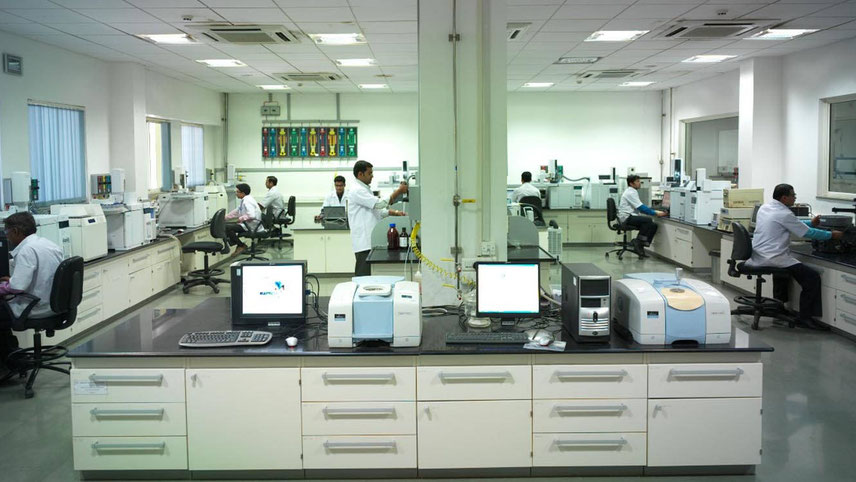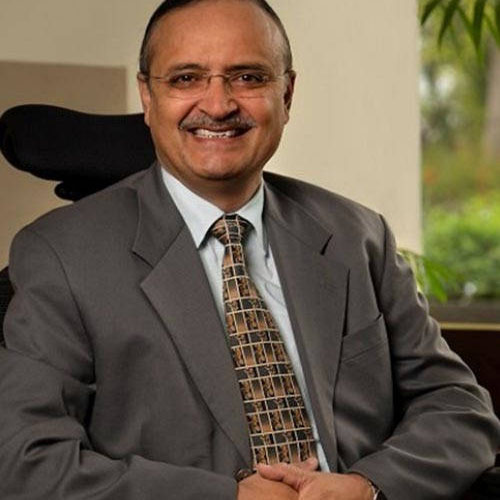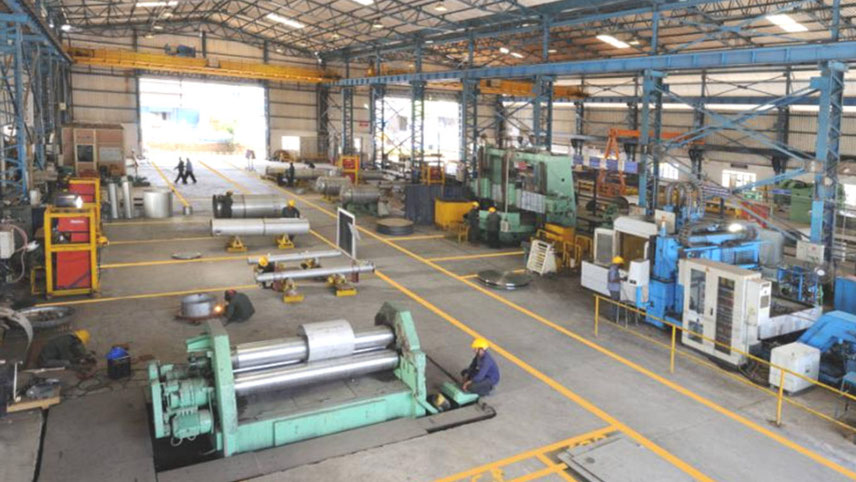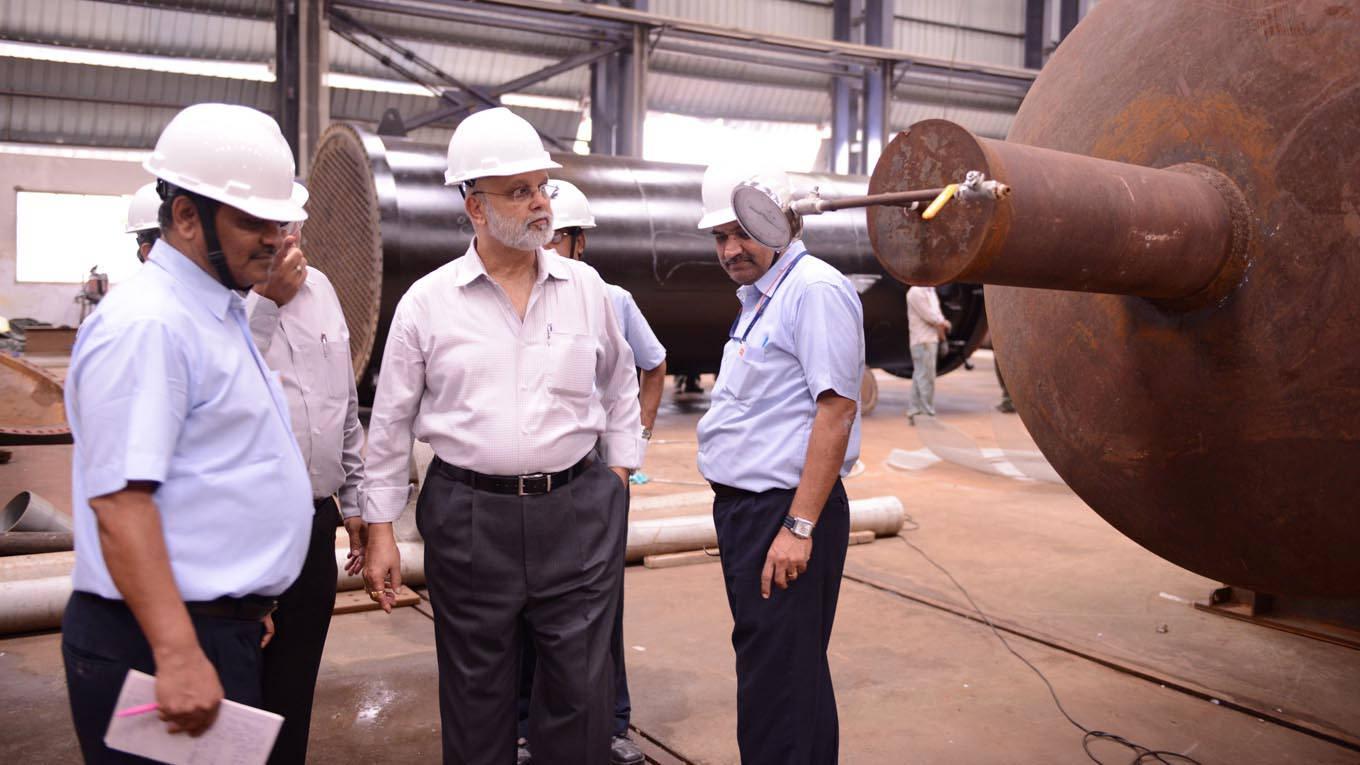-

The R&D facility is processing a range of bio-based feedstocks
“It is exciting to pole-vault into the RCM programme, the foundation of which is built on the success of our cellulosic ethanol technology ‘enfinity’,” says Dr Pramod Kumbhar, president and chief technology officer at Praj Matrix. “Here, we use the interdisciplinary approach of combining biology, chemistry and engineering to solve environmental issues related to the use of plastics, to make renewable polymers which are biodegradable.”
Others are impressed, too: Prof Dr Jay Keasling, professor of chemical engineering and bioengineering at the University of California, says it is ‘exciting’ to see some fantastic scientists at Praj Matrix. “I think the most important thing, though, is the translation of the basic science into practical solutions and the way Praj implemented this that will really help the world. So, I think Praj’s model of technology commercialisation is a trailblazer,” he adds.
Says Dr Ganesh Kishore, managing partner at Spruce Capital Partners LLC & CEO, Malaysian Life Sciences Capital Fund: “This is a very important endeavour for a company from India, not only in meeting the needs of Indian economy or the South Asian economy or for that matter people in Asia, but also many economies around the world… building a successful enterprise which addresses the needs of all humanity.”
India, according to Dr S. Sivaram, honorary professor and INSA honorary scientist at the Pune-based IISER, is very well placed to play a key role in the area of RCM – because, he explains, we have a key competitive advantage in terms of the feedstocks and raw materials that are essentially derived from agricultural and dairy-related industries in which India is a dominant player in the world. “Praj occupies a unique place to make RCM a very viable and profitable business segment for the growth of the chemical industry in India,” he says.
Chaudhari himself depicts the RCM project as “Nature Reimagined – The Promise of Sustainability” and says Praj is open to exploring newer business models with strategic partners. On this track, Praj has technical collaborations with a number of renowned global organisations, besides the Pune-based National Chemical Laboratory (NCL) with which it has signed a memorandum of understanding (MoU) for working jointly on promising project opportunities in the RCM space.
Pharma grade alcohol
The chemical industry worldwide is today estimated at $25 trillion annually, of which the RCM industry accounts for about $65 billion and has a CAGR of 11-12 per cent, which puts it in a position to cross $200 billion within a decade. The Asian market by itself is presently pegged at around $25 billion.
According to its results for April-June 2020, the company is executing its single largest pharma grade alcohol facility for a customer in the US and has bagged a contract for the supply of critical equipment for HPCL’s Bhatinda 2G biorefinery project. It has also entered into an MoU with the Automotive Research Association of India (ARAI) to jointly address technologies and propagate the use of biofuels in a variety of applications including usage in internal combustion engines (ICE) in the transportation sector, to augment the reach and application of the Bio-Mobility platform.
-

Joshipura: Bio-Mobility promotes renewable fuel for all modes of transport
It has also signed a Master Framework Agreement (MFA) with Gevo Inc, US, to collaborate on providing Sustainable Aviation Fuel (SAF). Gevo and Praj will provide technology, plant equipment and EPC services to customers to produce renewable isobutanol that will be aggregated and transferred to various refineries. Both parties will also provide technology, plant equipment and EPC services to refineries for converting renewable isobutanol into SAF through the ASTM (the erstwhile American Society for Testing and Materials)-approved pathway of Alcohol-to-Jet (ATJ).
Another MoU, with the US-based biotech company Lygos Inc, aims to co-develop advanced lactic acid yeast technology for bio-based products.
While Praj had a turnover of Rs971.72-crore in 2019-20, the first quarter of the current financial year saw a consolidated income from operations of only Rs129.55 crore, down more than 38 per cent from the Rs211.6 crore recorded in the corresponding quarter of the last FY. “The first half of the quarter was impacted due to the pandemic-induced lockdown,” Joshipura explains.
The second half, however, saw progressive resumption and opening of operations across facilities and project sites, taking the profit after tax to Rs10.5 crore against Rs8.77 crore. Order intake nearly doubled from Rs168 crore to Rs310 crore. “We ensured safe and secure conditions for our people, customers and partners while safeguarding the business in these unprecedented times,” he points out, adding that there has been increased traction in pharma grade alcohol demand around the world.
“Our customer engagements across business domains continue to remain strong and we are encouraged by the traction in order enquiries and leads,” Joshipura says. “We have further augmented our Bio-Mobility platform offerings.”
The Bio-Prism portfolio, which reinforces the company’s leadership as an innovative technology solutions provider for sustainability and conservation of the environment, comprises a variety of bio-industrial products, including bio plastics as a priority, along with cellulose-lignin refinery products and specialty products. These products have applications in industry sectors like automotive, packaging, furnishing, construction, agriculture and food. Over the short to medium term, Praj plans to commit substantial resources for technology and application development with its strategic partners.
Sustainable solution
Praj’s innovative BIOSYRUP technology, says Atul Mulay, president of bioenergy business, enables the sugar industry to store sugar syrup – thus ensuring reliable, round-the-year ethanol production while helping the industry cope with market pressure and an uncertain environment. The technology also helps increase production capacity by 50 per cent without stressing the existing Zero Liquid Discharge system, he explains.
The World Economic Forum’s recent Global Risks Report 2020 identifies the top five global risks in terms of likelihood as being related to the environment and attributable to the detrimental effects of climate change. In a world driven by fossil fuels for over a century, sustainability is one of the biggest casualties because of the adverse impact carbon emissions have on climate change.
India currently imports over 80 per cent of its fossil fuel; a business-as-usual scenario indicates this will reach 90 per cent by the end of the current decade. Transportation is the single largest user of fossil oil, covering a large population of vehicles – about 80 million – across all modes of transport, in which the ICEs depend on fossil fuels as a primary energy source.
-

Praj's manufacturing plant at Pune
There is expected to be increasing demand for energy resources and infrastructure with India establishing itself as a leading economic power, and it needs to adopt a responsible and sustainable path to meet its growing energy demand – with a comprehensive plan to reduce its carbon footprint and develop an ecosystem of sustainable energy sources. This necessitates the use of indigenous energy sources which will facilitate energy self-reliance and reduce import and foreign exchange expenditure. Biofuels – any fuel derived from biomass and agro-residue – are a sustainable solution.
The country has targeted achieving 10 per cent ethanol blending in petrol by 2022 and 20 per cent by 2030. There are, however, several challenges in supply, especially with the current glut in sugar production and deficit in ethanol supply. To mitigate this, the Government of India has allowed the diversion of excess sugar in the form of B-heavy molasses, sugarcane juice and syrup to produce bioethanol in additional to the conventional method of using only C-molasses. If the sugar industry now diverts 25 per cent to produce ethanol, the average of six million tonnes of sugar can produce 3.6 trillion more litres of ethanol.
Biofuels, as Chaudhari explains, utilise nature’s extensive resources to provide innumerable possibilities that conserve the environment while addressing the ever-increasing energy challenges. “Our robust technology and process innovation have resulted in end to end biofuel solutions that help reduce GHG emissions, carbon footprint and pollution,” he says. “These also bring down oil imports and create employment opportunities in rural areas to enhance the sustainability of biofuel production.”
Welcoming the government’s pragmatic policies which are accelerating the use of biofuels in the domestic market, he adds: “As Praj takes its next leap into RCM, we are confident of cementing our position as a key player in the Bioeconomy.”
-
As Praj takes its next leap into RCM, we are confident of cementing our position as a key player in the Bioeconomy
Ecosystem endorsement
His vision and work in revealing the vast potential that biotechnology offers to solve global challenges like combating climate change and establishing an economy centred around sustainability have won Pramod Chaudhari a golden feather in his cap.
Says Chaudhari, who in September became the first Indian recipient of the George Washington Carver Award for innovation in industrial biotechnology and agriculture: “I am pleased that as the highest international recognition in industrial biotechnology, the GWC award puts Praj and India at the forefront of the global bioeconomy.” The award, conferred on the founder and executive chairman of the Pune-headquartered global company, recognises Praj’s pioneering endeavours in creating value from agri-processing and supporting the rural economy that have led to the creation of sustainable end-to-end solutions.
The award for 2020 was presented during the Washington DC-based Biotechnology Innovation Organization (BIO) and IowaBio, the online BIO IMPACT Digital Ag & Environment Conference, on 22 September. The recognition has been described as a “testament to Dr Chaudhari’s exemplary leadership, pioneering endeavours and relentless pursuit in building a sustainable ecosystem for the advancement of a bio-based economy”.
Instituted in 2008, the award is named after Carver, a celebrated agricultural scientist, inventor and environmentalist and is the highest recognition for outstanding contribution in the industrial biotechnology sector worldwide. Praj’s Bio-Mobility portfolio helps ensure sustainable decarbonisation through the circular bioeconomy by offering technology solutions globally to produce renewable transportation fuel. The company’s Bio-Prism portfolio comprises renewable chemicals and materials solutions, promising sustainability while reimagining nature.





































